
A jewel of the Pinku Eiga aesthetic with stories of hidden obsessions and explicit desire
Hisayasu Satô, known as one of the four demons of the Pinku Eiga (ピンク映画, literally "pink film"), a subgenre of Japanese exploitation cinema, with notable impact in the 1960s and until the end of the 20th century for its erotic themes and marginal settings, is a filmmaker known for making incredibly sordid films about ultraviolence, isolation, loneliness, existentialism, obsession, alienation, perversion, voyeurism and perverse and explicit sexual content.Recognized worldwide for films such as 'Hunters' Sense of Touch', 'Splatter: Naked Blood', 'Lolita Vibrator Torture', 'Train: Dirty Behavior de Molester' and 'Brain Sex', among others, 'Bondage Ectasy' (陶酔遊戯), from 1989, is one of his best films, but not as personal as 'Muscle'.
Famous for his "sledgehammer" cinematographic style and his "guerrilla shooting technique", he filmed countless films under the Pinku Eiga aesthetic, emerging as a response to the strict regulations of the film industry and as a bold exploration of sexuality and social taboos.
Although often associated with eroticism and nudity, the Pinku Eiga films go far beyond the superficial, offering a provocative look at human psychology and the complexities of Japanese society at the time, a kind of response to cinema traditional, by introducing subversive and political elements, which managed to establish a connection with the French New Wave through directors such as Masao Adachi, responsible for 'A gushing prayer' (1971), who was a collaborator of Nagisa Oshima.
The Pinku Eiga films frequently featured marginalized characters and extreme situations, offering a raw, unvarnished view of Japanese society at the time. This directness and cinematic audacity resonated both in that country and abroad, turning his works into a cultural phenomenon with a lasting legacy.
With low budgets, another of the characteristics of this subgenre, Hisayasu Satô's films were filmed in times of social and political turbulence, and they challenged conventional norms and became a form of expression for filmmakers who sought to break creative barriers and explore new narrative territories.
Scripted by Yumeno Shiro, 'Bondage Ectasy', a Pinku Eiga film with a gay theme, is characterized by its bold use of color, visual composition and symbolism, using the image in a provocative way to convey subversive messages and explore themes such as desire, repression, obsession and alienation.
Themes of loneliness, power and existentialism are mixed with the typical pinku themes of sex and violence in a way that only Hisayasu Satô could achieve.
The film follows an anonymous man, played by Shotaro Sawada, a young man who sees his sexual life altered after the physical and mental torture and humiliation he receives from his boss and co-workers in an office.
But this will not be the only reason for her unhappiness: her boyfriend, played by Osamu Fukuda, does not have much time to dedicate to him due to his absence both for work reasons and because he is always accompanied by his lover, a young woman, played by actress Setsuhiko Kobayashi. The three soon find themselves involved in a kind of love triangle based on sadomasochism.
After receiving a beating from his boss and having an unexpected sexual encounter with his absent boyfriend and former fencing partner, something reawakens in our young office worker. While reading Metamorphoses by Franz Kafka, the main character has recurring dreams of turning into an insect in a dream sequence and sees her boyfriend and their mutual lover as they really are. On the other hand, he observes various sexual acts of captive men with the presence of sadomasochism.
Coupled with an unsatisfying sexual event with the woman with whom he lives the love triangle, we don't have to look far to find meaning in his world of dreams and fantasies.
The exploitation that forms obsession is a manifestation that is present in the deepest internal fantasies of our protagonist.
Turned into an insect, the character also realizes that he can control those who ingest him while occupying his new body. While all of this may seem complicated and strange, Satô is able to weave the story in a way that distinguishes the film not only from his preceding work, but from the Pinku Eiga aesthetic as a whole.
The synopsis will make many believe that it is simply a pink movie with a touch of Kafka's novel. However, Satô seems to be more interested in the work of someone like De Sade.
The sleaze in 'Bondage Ecstasy' is evident from the first to the last scenes of the film. Graphic and rough sex, sadomasochism and voyeurism are present in virtually every frame of the film and create an often uncomfortable viewing experience.
While the film does not rely on effects at all, the effects present, properly adjusted to the tone and purpose of the feature film, are also very well done and much better than one would expect considering its low budget.
Another technical section to highlight is the music. The soundtrack never takes center stage, but rather reflects the tone of the film.
'Bondage Ecstasy' manages to generate reactions of disgust in some viewers, and admiration in many others. However, no one can deny the power of the film and Satô's legacy. This film is essential for all Pinku Eiga fans and for anyone interested in seeing how sexual exploitation and cinema belonging to this aesthetic can touch the sky.
Despite being filmed on video, like most of Satô's film work, the cinematography and direction demonstrate the maturity and consolidation of the Japanese director. This is evident during the segments in which the protagonist is an insect.
Towards the end of the film, 'Bondage Ecstasy' takes a turn and what initially feels claustrophobic opens up as the viewer literally becomes a fly on the wall as they see the lives of Sawada's acquaintances, those people who torture him and humiliate.
It is incredible how from a grainy VHS quality film with an extreme emphasis on aesthetics over characters and plot there is so much luminosity. Sato's work in photographing male bodies is magnificent, in an erotic way, without feeling disgusting, everything is vaguely uncomfortable but above all intimate and exciting. The Japanese filmmaker films the best combination of philosophy and softcore porn that I can imagine and at least have seen.
Each sexual gesture is strangely erotic, full of transgression, violent and pleasurable, establishing a hierarchy between a boss and his subordinate, who like to enjoy the pleasures and dangers of sadomasochism.
On the other hand, the chemistry between the two main actors goes beyond the physical sphere, but is emotional, psychological and fully satisfying.
The film portrays sexual domination that metamorphoses (becomes an insect) into the condition of society (specifically workers) and capitalism in Japan.
However, the viewer cannot classify 'Bondage Ecstasy' as a mere sexual film. The segments where Sawada's character transforms into an insect are powerful in a strange way. A man trampled by the members of the society of which he is a part has the opportunity to witness how the people who have humiliated, tormented and tortured him physically and mentally live, to discover that they are not very different from him and also struggle with your own personal hell.
From this new position, the character played by Sawada can take revenge by controlling them for brief moments. In this way, the protagonist receives a new vision of his life and, in a way, gains power.
While this power initially appears to be a positive thing, it soon begins to erode his soul until he comes to the conclusion that he is no better than his tormentors.
The film, which culminates in a graphic scene of violence, leaves the viewer with a disturbing feeling that is difficult to overcome. 'Bondage Ecstasy' is haunting, depressing and at the same time beautiful, and the emotions it evokes in the viewer never seem artificial.
Esta resenha foi útil para você?

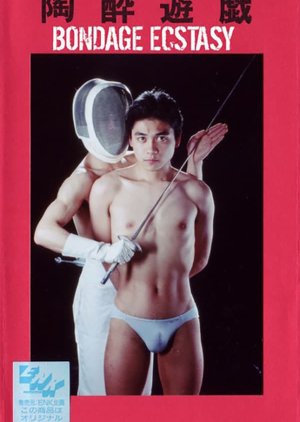







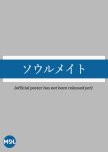

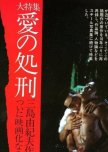
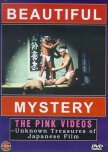
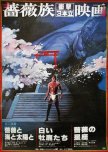
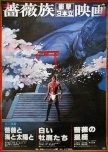
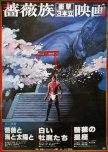
![[BL/gay/LGBTQ+] movies & short movies](https://i.mydramalist.com/kmL7O_4t.jpg)
![[BL/gay/LGBTQ+] movies & short movies](https://i.mydramalist.com/eVm48t.jpg)
![[BL/gay/LGBTQ+] movies & short movies](https://i.mydramalist.com/gZZ0Ot.jpg)
![[BL/gay/LGBTQ+] movies & short movies](https://i.mydramalist.com/7r3YBt.jpg)
![[BL/gay/LGBTQ+] movies & short movies](https://i.mydramalist.com/kDBwv_4t.jpg)















